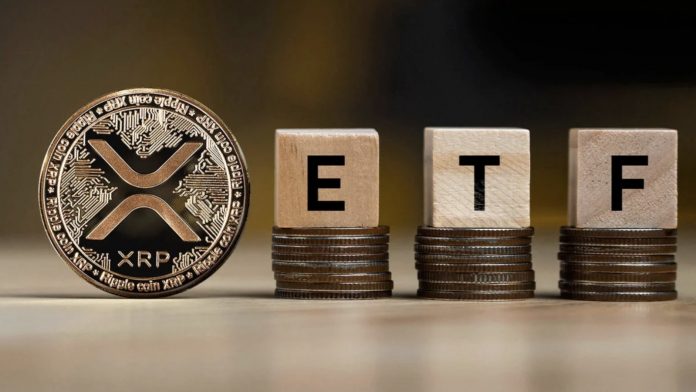The Polymarket app is officially rolling out in the US as of December 3, 2025, following CFTC approval after a 2022 regulatory ban that forced the platform to exit the market.
The rollout began yesterday for users on a waitlist which has over 200,000 sign-ups and is starting with sports markets, with broader categories like politics, crypto, and culture to follow soon.
Polymarket settled a $1.4 million fine with the CFTC in 2022 for operating an unregistered derivatives exchange. To relaunch compliantly, it acquired the registered entity QCEX for $112 million in July 2025, securing an “Amended Order of Designation” in November that allows it to operate under federal rules as an intermediated trading platform.
It’s a gradual beta via the iOS app already live globally with 4.9-star ratings. US users download the app, join the waitlist at Polymarket.us, and get notified via text for access. Early testers like UFC CEO Dana White have had beta access, and it quickly hit #1 in the Apple Store’s sports category.
Sports betting contracts (e.g., NFL, NBA outcomes) launch first, capitalizing on the $16+ billion in annual US sports wagering volume. This mirrors competitors like Kalshi, which also exploded during football season.
Full “markets on everything” (e.g., election odds, gold prices, celeb news) will expand later. Even without US users, Polymarket hit all-time highs in November 2025: $3.73 billion in monthly volume and 494,690 active traders globally. It handled $18.5 billion in total volume over the past year, outpacing Kalshi’s $16.4 billion.
The relaunch comes amid buzz, including a potential $2 billion investment from Intercontinental Exchange valuing it at $8–10 billion. This marks Polymarket’s regulated return after nearly four years, positioning it as a “truth machine” for crowd-sourced predictions on blockchain—faster and more efficient than traditional polling or analyst reports.
It’s already proven accurate (e.g., nailing the 2024 election), and US access could supercharge liquidity, tighter spreads, and adoption by institutions like hedge funds for macro signals.
Rivals like Kalshi which just partnered with CNN and tokenized on Solana are heating up the space, but Polymarket’s crypto roots give it an edge for on-chain trading.If you’re on the waitlist, check your notifications—access is going live now.
Polymarket is a decentralized prediction market platform where users buy and sell shares in event outcomes (e.g., “Will Trump win the 2024 election?”) using USDC stablecoin on the Polygon blockchain.
Share prices fluctuate between $0 and $1 based on perceived probability—e.g., a $0.75 “Yes” share implies a 75% chance of the event happening. When the event resolves, “Yes” shares pay $1 if true, or $0 if false.
This creates a self-correcting “wisdom of the crowd” mechanism: Traders have skin in the game, so incentives align toward accurate forecasts, unlike polls where responses are costless and prone to bias.
Percentage of markets where the leading outcome (e.g., >50% probability) correctly matched reality. Brier Score: A probabilistic metric (0 = perfect, 1 = worst) that penalizes overconfidence. Lower scores indicate better calibration—e.g., if a market predicts 80% “Yes” and it happens 80% of the time across similar events, it’s well-calibrated.
Polymarket publishes its own accuracy dashboard, tracking resolved markets across categories like politics, sports, and crypto. Independent analyses via Dune dashboards confirm high performance, often outperforming polls by aggregating real-time, incentivized data from global users.
Research by data scientist Alex McCullough via Dune Analytics analyzed thousands of resolved Polymarket markets, excluding extremes probabilities <10% or >90% to focus on uncertain ones. Results show accuracy improving as events near resolution, reflecting incoming information.
Overall, Polymarket hits 90-95% binary accuracy across 10,000+ resolved markets since 2020, per platform data and third-party reviews. Brier scores average 0.10-0.15, better than traditional forecasts.
Polymarket nailed Trump’s win with 95% accuracy in swing states (e.g., Pennsylvania at 55% Trump odds days before polls called it a toss-up). It outperformed FiveThirtyEight’s aggregates by 10-15% in final-week calibration, per Vanderbilt University research.
Total volume: $3.6B, with odds shifting decisively in October while pundits hedged. 2022 U.S. Midterms: Predicted Republican House control earlier than most polls, capturing GOP enthusiasm missed by low-response surveys.
Sports (2025 Season): 85-90% accuracy on NFL/NBA outcomes, lower than politics due to fewer “long-shots” (e.g., underdogs <5% odds are rare). Handled $4.5B in finals betting, like NBA playoffs. Forecasted Canada’s 2025 Liberal lead wider than polls. But mixed results elsewhere—e.g., overestimated Poland’s Trzaskowski at 80% in the presidential runoff.
In national security, Polymarket’s Russia-Ukraine ceasefire odds peaking at 70% in Dec 2024, dipping to 40% by Feb 2025 provided real-time geopolitical signals, outperforming analyst reports.
Traders risk money, so misinformation gets arbitraged out—unlike polls, where shy voters or biases distort results (e.g., Republicans underreport in surveys). Aggregates diverse views instantly; crypto anonymity draws underrepresented groups (e.g., 17-20% U.S. crypto owners skew toward GOP men).
Despite this, Polymarket’s edge grows with scale—$18B+ lifetime volume in 2025 alone. It’s not infallible but a powerful “truth machine” for crowd wisdom, especially in uncertain times.






